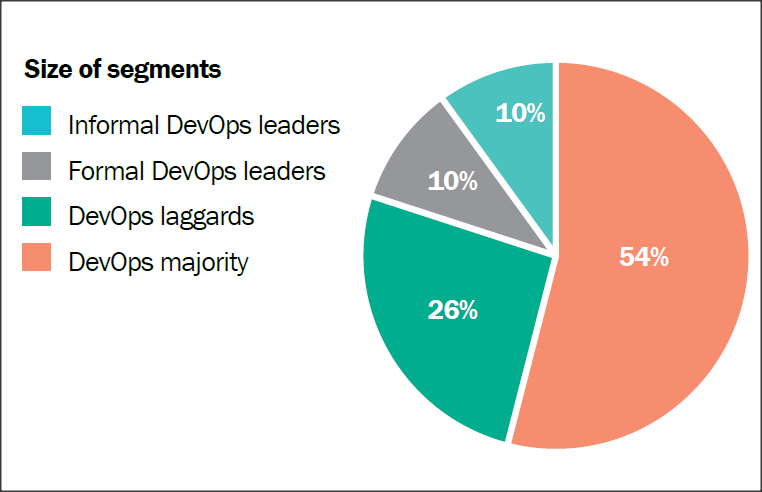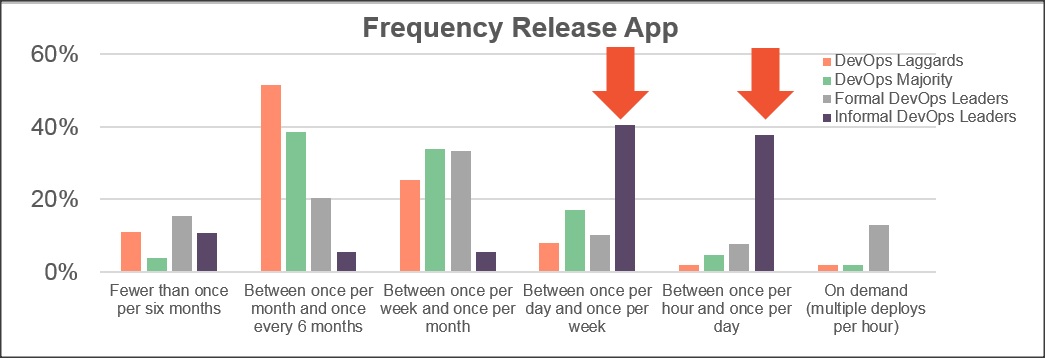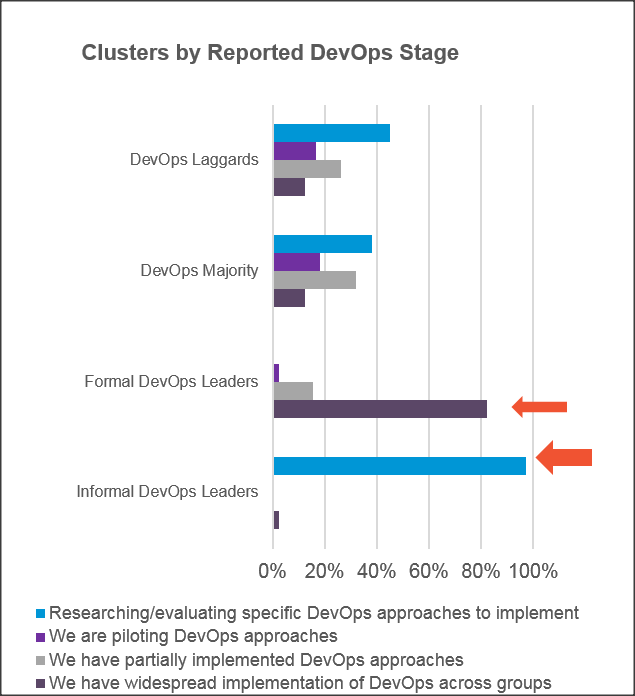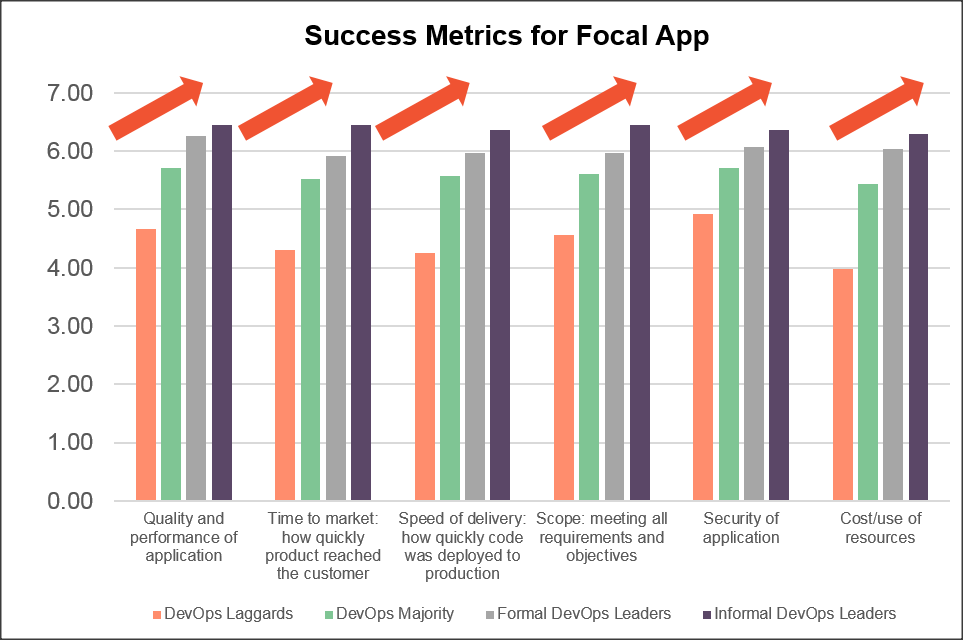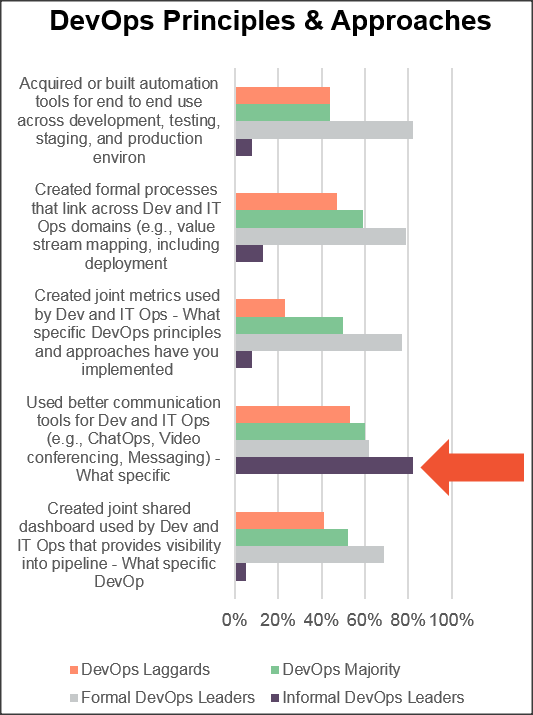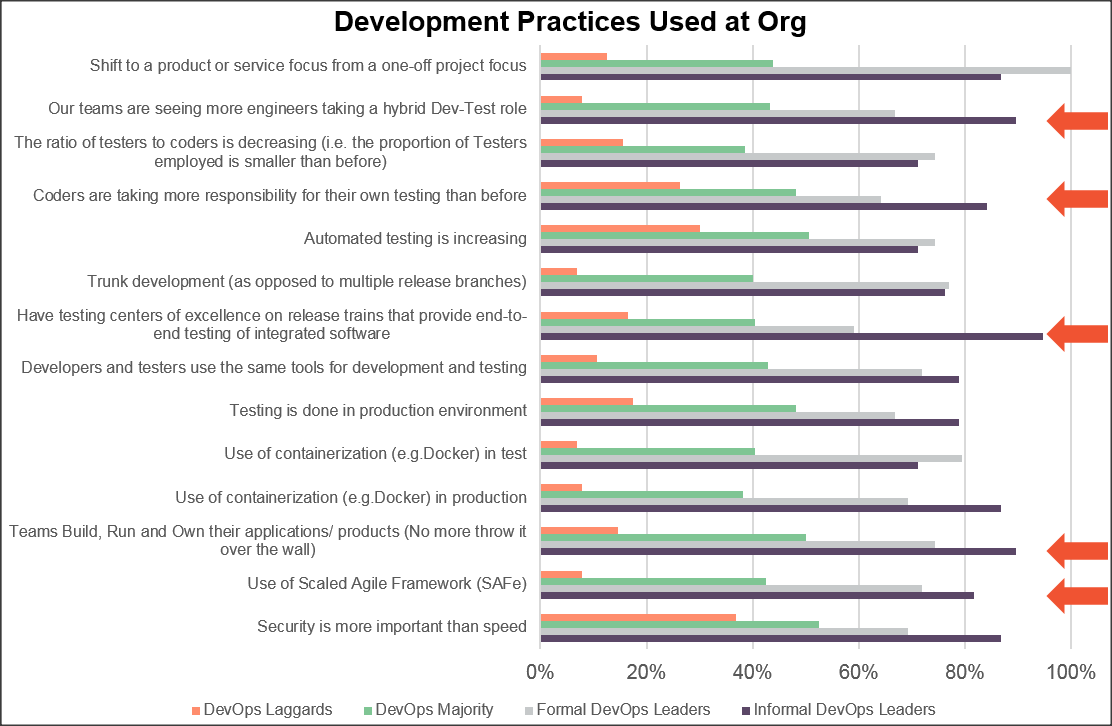A recent study of Dev and Ops professionals in large enterprises found that those with the least mature DevOps implementations were seeing the most success. While that sounds like a paradox, it's the approach the teams took that matters. A similar tack might just benefit your own DevOps efforts.
The study, commissioned by HPE's Digital Research Team, focuses on what's called process maturity, a common framework that people use to describe how an organization can progressively improve the effectiveness of its work. Typically expressed as a range of levels from one to five (mirroring the Carnegie Mellon Software Engineering Institute’s Capability Maturity Model), maturity models are used to address everything from human resources processes, to information security, to e-learning—and now DevOps.
Here are highlights from what the survey found.
The four phases of DevOps maturity
For the 2016 Enterprise Agile and DevOps Study, YouGov asked more than 400 Dev and Ops professionals in enterprises with 500 or more employees about their adoption of and success with DevOps. The goal of the 15-minute online survey was to learn more about what practices and activities result in the highest levels of DevOps success.
To that end, the study asked about the state of DevOps deployment in the organization, with four levels of engagement as possible responses. These included:
- Researching / evaluating DevOps approaches
- Piloting DevOps approaches
- Partially implemented DevOps approaches
- Widespread implementation of DevOps across groups.
In this study, these represented four levels of DevOps maturity, and one would expect to see DevOps results increase as maturity level rises. But the study didn’t show a clear correlation between the state of DevOps deployment and better application delivery results. It did, however, uncover insights into how you can improve your own results.
Upon deeper analysis, the study broke down respondents into four segments, based on processes and results they were achieving:
- DevOps laggards
- DevOps majority
- Formal DevOps leaders
- Informal DevOps leaders
Source for all infographics: 2016 Enterprise Agile and DevOps Study, HPE.
Informal DevOps leaders take the lead
Informal DevOps leaders—the 10 percent respondents who almost exclusively claimed to be researching and evaluating DevOps, and who were at the lowest level of maturity, outperformed the other segments. They are releasing code faster, and with higher quality.
Many teams in this group released code weekly or faster, and their releases appeared to cause less rework and remediation when they reached production.
The formal DevOps leaders group, which also represented 10 percent of total respondents, operated at the highest maturity level: most said they had implemented DevOps widely. With informal leaders, by contrast, most said they were still researching and evaluating DevOps.
Informal DevOps leaders were almost exclusively practicing agile. They leverage either small-team or enterprise agile in their work, which helps give them faster feedback cycles and the ability to experiment, learn and improve.
Informal DevOps leaders appeared to outperform all the other segments for a variety of other success criteria. They reported delivering faster, more complete, more cost effective and more secure code than their peers.
You might think that the Informal DevOps leaders group would lead in adopting specific principles and approaches, such as deploying automation, defining processes to link Dev and Ops, and sharing KPIs and dashboards. But that's not the case. In fact, Informal DevOps leaders did not prioritize those principles and approaches. But they did place a clear emphasis on communication and collaboration.
In other words, the informal DevOps leader segment appears to place culture, sharing, and collaboration above tools and techniques, which were more important to the other three groups.
Interestingly, the informal DevOps leader segment used all of the practices that one would expect to find in teams that have fully adopted DevOps, even though they described themselves as still researching and evaluating DevOps. For example, this group reported:
- More shared responsibility for testing and quality
- More automated testing
- Trunk-based development
- Testing centers of excellence supporting the release trains
- A shift toward “build, run, own” model for their code / a product orientation
- Shared tools between developers and testers
- Containerization
- Use of the Scaled Agile Framework (SAFe)
- An emphasis on the importance of security
While the informal DevOps leaders may not claim to be doing widespread DevOps, they are delivering impressive results. They also appear to be following many of the best practices that one would expect to find in a team that has adopted DevOps and is fully mature.
DevOps maturity does not equal success
As the experience of informal DevOps leaders shows, DevOps success may not be directly linked so much to process maturity and standardization as it is to a mindset of exploring, experimentation and continuous learning. Indeed, the study illustrates the importance of agility, communication and collaboration in achieving faster delivery and higher quality.
The full spectrum of DevOps techniques (continuous integration, continuous delivery, continuous testing, trunk-based development, containerization, and so on) clearly apply and play a role here, but the key differentiator was the spirit of learning, experimenting, improving—and maybe even a sense of humility.
The key to success in DevOps is to not be complacent, but to continuously learn and improve. The survey results bear this out: DevOps is not a destination; it's a journey.
Keep learning
Take a deep dive into the state of quality with TechBeacon's Guide. Plus: Download the free World Quality Report 2022-23.
Put performance engineering into practice with these top 10 performance engineering techniques that work.
Find to tools you need with TechBeacon's Buyer's Guide for Selecting Software Test Automation Tools.
Discover best practices for reducing software defects with TechBeacon's Guide.
- Take your testing career to the next level. TechBeacon's Careers Topic Center provides expert advice to prepare you for your next move.


